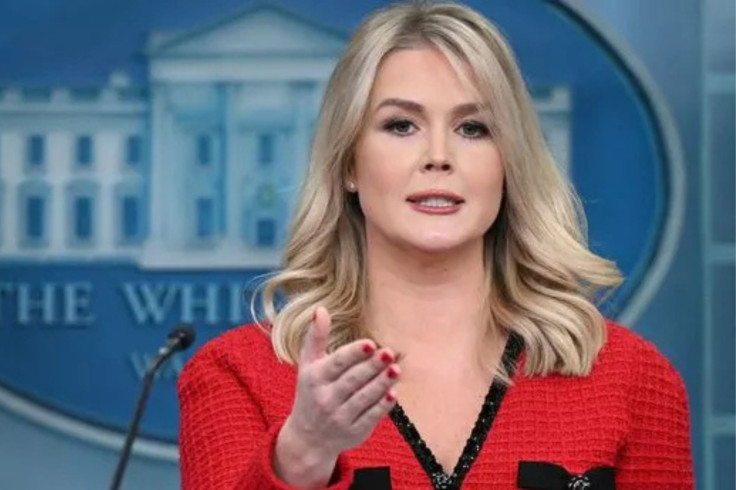
The White House is relying on one word to reject reporting by The Atlantic about top officials discussing highly-sensitive military operations on the Signal messaging app: that it's latest article revealing the content of the conversation, which included real-time updates, uses the word "attack" in the headline rather than "war."
White House Press Secretary Karoline Leavitt said on X on Wednesday that "The Atlantic has conceded: these were NOT 'war plans.'" "This entire story was another hoax written by a Trump-hater who is well-known for his sensationalist spin," Leavitt added.
The Atlantic has conceded: these were NOT “war plans.”
— Karoline Leavitt (@PressSec) March 26, 2025
This entire story was another hoax written by a Trump-hater who is well-known for his sensationalist spin. pic.twitter.com/atGrDd2ymr
The argument departs from the ones used by Trump officials after the original piece was published, as they initially claimed that no sensitive information was discussed and downplayed the importance of its content.
The Atlantic Editor-in-Chief Jeffrey Goldberg noted that Director of National Intelligence Tulsi Gabbard said "there was no classified material that was shared in that Signal group," and that CIA director John Ratcliffe said "my communications, to be clear, in the Signal message group were entirely permissible and lawful and did not include classified information." President Donald Trump, on his end, said "it wasn't classified information."
In this context, Goldberg said that the refusal presented a dilemma regarding whether to reveal the content of the chats or not, as the outlet doesn't tend to publish information about military operations if it could jeopardize the lives of U.S. personnel. However, the statements by top officials "have led us to believe that people should see the texts in order to reach their own conclusions," he added.

The outlet went on to detail that is asked several agencies if they objected to the chats being published. Many didn't answer, but White House Press Secretary Karoline Leavitt said the administration did. The outlet went ahead anyway.
The chats include several updates from Mike Waltz and Pete Hegseth, confirming the final approval of the mission and the different attacks launched. Shortly after the first batch of texts were sent, Vice President J.D. Vance texted "I will say a prayer for victory."
The texts also include confirmation of a successful attack against "their top missile guy." "we had positive ID of him walking into his girlfriend's building and it's now collapsed," Waltz said. The Houthi-run Yemeni health ministry reported that at least 53 people died as a result of the attacks.
© 2025 Latin Times. All rights reserved. Do not reproduce without permission.





